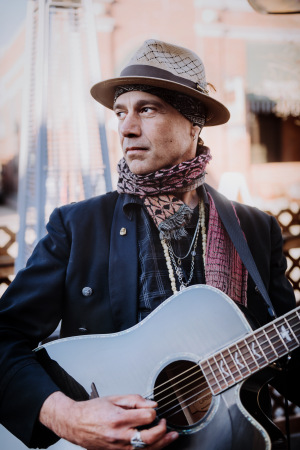The Award Programme
The Discovery Award Challenge
The challenges of The Discovery Award are non-competitive. You progress at your own pace and within your own capabilities, whilst having fun and enjoying yourself at the same time. Through the programme, you will meet new people and make new friends.
There is no maximum time limit for each challenge only a minimum. This is to promote a real sense of commitment to your chosen challenge. You do not have to work on all quadrants simultaneously, certainly when very new to The Award it might be better for you to only work on one or two of the challenges at one time, or even finish one quadrant before beginning another.
There are three levels: Bronze, Silver and Gold - each with an agreed time span and leading to its own certificate and badge. Each level has four sections:
1. Service in the Community:
Any service which helps others is acceptable. For example, Red Cross, visiting the elderly, committee work, working with voluntary youth organisations, conservation - the demand for volunteers is endless, so the choice is yours.
| Level | Total Hours | Spread over a minimum of |
|---|---|---|
| Bronze | 24 - 30 | 12 weeks |
| Silver | 48 - 60 | 26 weeks |
| Gold | 100 - 120 | 52 weeks |
2. Recreational Pursuit
 This should involve some physical activity, but the limits are set by your own health and ability. Start slowly for your Bronze and work up to your Gold. For example, you might choose to try archery, cycling, badminton, table tennis, golf, wheelchair sports, gardening, dancing, snooker or darts etc.
This should involve some physical activity, but the limits are set by your own health and ability. Start slowly for your Bronze and work up to your Gold. For example, you might choose to try archery, cycling, badminton, table tennis, golf, wheelchair sports, gardening, dancing, snooker or darts etc.
| Level | Total Hours | Spread over a minimum of |
|---|---|---|
| Bronze | 24 - 30 | 12 weeks |
| Silver | 50 - 60 | 26 weeks |
| Gold | 50 - 60 | 26 weeks |
Please note the time scale for the Silver and Gold Awards are the same because some recreational activities can be affected by seasonal restrictions.
3. Hobby or Interest
 You might like to take up a new interest or develop an old one. The choice is vast: writing, gardening, collecting stamps or postcards, reading, cinema or T.V, music, languages, painting or drawing, photography, local history or architecture, abseiling or palaeontology - you name it, you can do it!
You might like to take up a new interest or develop an old one. The choice is vast: writing, gardening, collecting stamps or postcards, reading, cinema or T.V, music, languages, painting or drawing, photography, local history or architecture, abseiling or palaeontology - you name it, you can do it!
| Level | Total Hours | Spread over a minimum of |
|---|---|---|
| Bronze | 50 - 60 | 26 weeks |
| Silver | 100 - 120 | 52 weeks |
| Gold | 150 - 180 | 78 weeks |
4. Journey of Discovery
Originally this involved a physical journey but can now be much more flexible. The aim of the Discoverer should be to extend and explore within their own capabilities. It could be a physical journey but could also be a virtual or non-physical journey. Whichever you choose it must have a clearly defined purpose with time scales and challenge appropriate to the Level of the Award.
The Journey of Discovery should include the following elements.
- Advanced planning - including the purpose of your journey
- Essential preparation - including adequate training where necessary and relevant
- Travel Arrangements - where relevant
- Research - using books, internet, television, travel agents etc.
Throughout the preparation and duration of your journey, a record of your progress can be kept in a variety of formats.
Physical Journeys
Discoverers may choose to travel to another country or to a different area in which they have an interest and wish to visit with a definite purpose in mind. It could also involve an expedition in Wild or Semi Wild Country. In this case, recognised Safety Guidelines and Procedures must be followed. Time Scales vary for each level.
| Level | Length and details |
|---|---|
| Bronze | The journey should be at least two consecutive days with at least 12 hours of planned activity. Appropriate preparation should be included in the planning. |
| Silver | The journey should be over at least four consecutive days and include at least 24 hours of planned activity. This may be in two sets of two consecutive days. Appropriate preparation should be included in the planning |
| Gold | The journey should be over at least six consecutive days and include at least 36 hours of planned activity. This may be in three sets of two consecutive days or two sets of three consecutive days. Appropriate preparation should be included in the planning. |
At all three levels, appropriate preparation should be included in the planning of your journey.
Non-Physical or Virtual Journeys
Those not wishing to make physical journeys can research and plan journeys to local places of interest or to anywhere else in the world.
Details can be put together to make an account of activities that could be undertaken. It would also include the period of time that would be necessary to make the proposed trip. You could plan to visit places which can be linked together in some way, such as places with historic or literary connections, or ones you knew in the past.
You could research your Family Tree illustrating it with a scrapbook.
The range of opportunities is enormous.
- The purpose of your journey
- Details of planning and preparation, including any training if applicable
- What you achieve
- What you discover
- How your journey extended your capabilities, knowledge or interests
- Include any significant events, photographs etc.
The assessor for the Journey of Discovery should be satisfied that the participant has undertaken the challenge in keeping with their capabilities. The Assessor should also be satisfied that the stated purpose and discovery elements have been met in full
